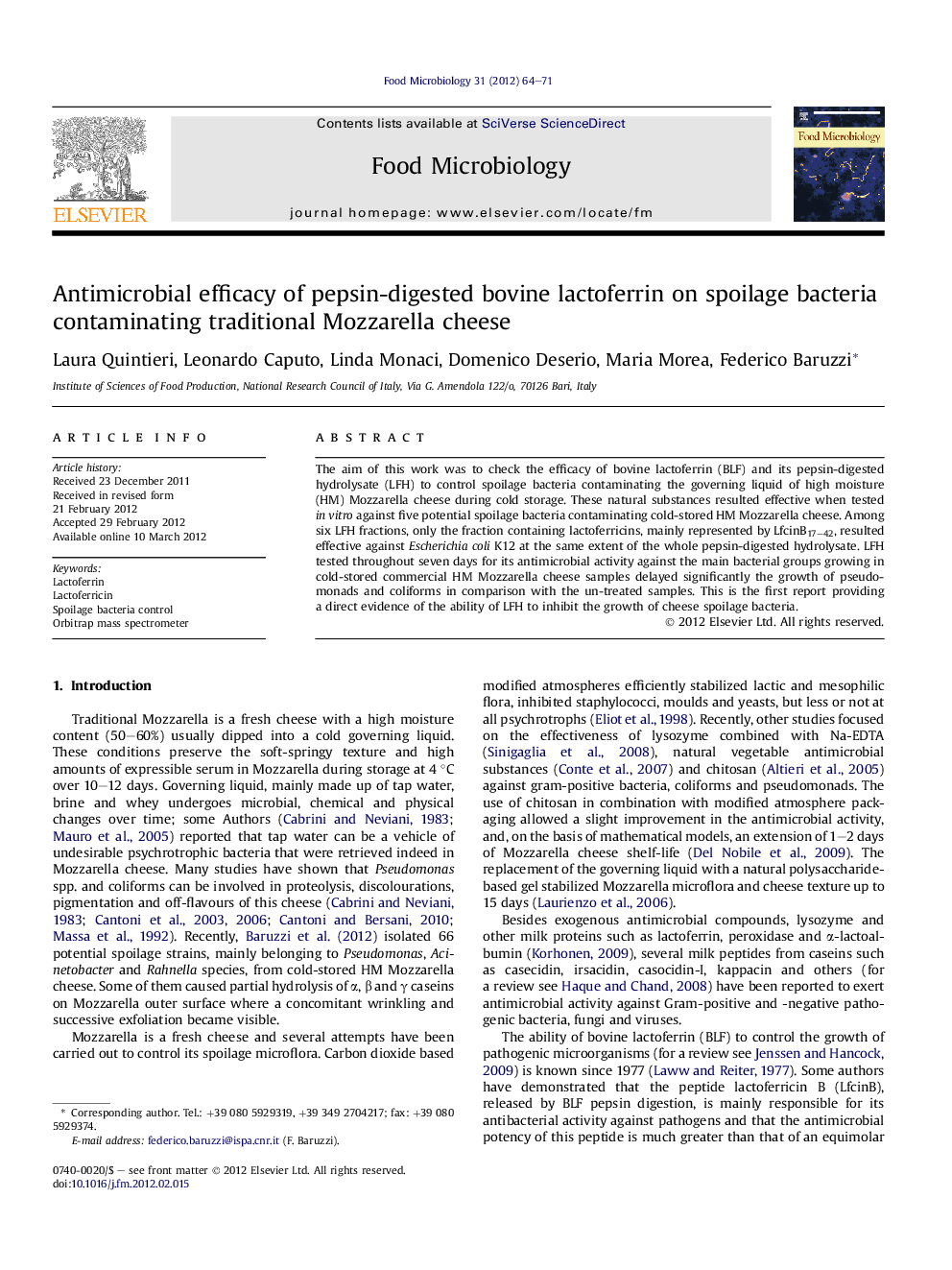| Article ID | Journal | Published Year | Pages | File Type |
|---|---|---|---|---|
| 4363131 | Food Microbiology | 2012 | 8 Pages |
The aim of this work was to check the efficacy of bovine lactoferrin (BLF) and its pepsin-digested hydrolysate (LFH) to control spoilage bacteria contaminating the governing liquid of high moisture (HM) Mozzarella cheese during cold storage. These natural substances resulted effective when tested in vitro against five potential spoilage bacteria contaminating cold-stored HM Mozzarella cheese. Among six LFH fractions, only the fraction containing lactoferricins, mainly represented by LfcinB17–42, resulted effective against Escherichia coli K12 at the same extent of the whole pepsin-digested hydrolysate. LFH tested throughout seven days for its antimicrobial activity against the main bacterial groups growing in cold-stored commercial HM Mozzarella cheese samples delayed significantly the growth of pseudomonads and coliforms in comparison with the un-treated samples. This is the first report providing a direct evidence of the ability of LFH to inhibit the growth of cheese spoilage bacteria.
► Lactoferrin pepsin-digested hydrolysate (LFH) highly inhibited selected Mozzarella spoilage bacteria. ► Among LFH fractions assayed, only that containing lactoferricin resulted to be active. ► LFH was added to cold-stored HM Mozzarella samples to control natural microflora. ► Pseudomonads and coliforms were inhibited by LFH.
